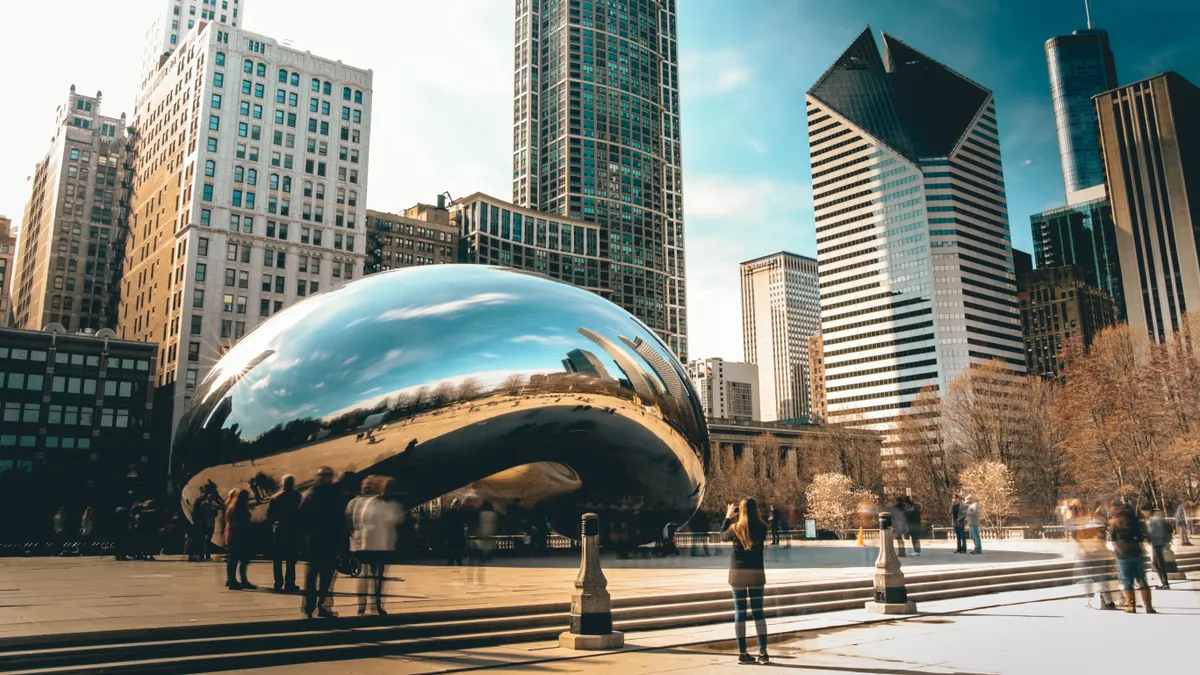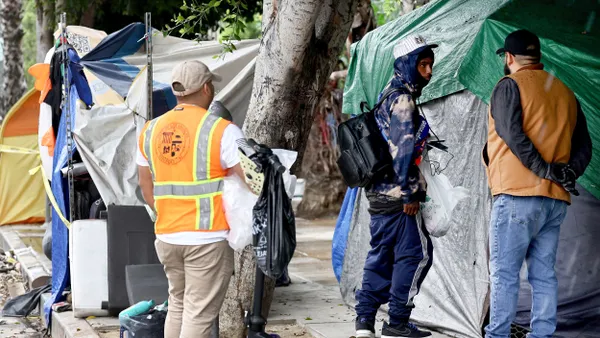Dive Brief:
- As part of a commitment to use more renewable energy, Chicago Mayor Rahm Emanuel announced a challenge with private and university partners to incentivize them to use renewable energy to power one or more buildings by 2035.
- Participants in the Chicago Renewable Energy Challenge pledge to keep their buildings powered with renewable energy for at least 10 years, and to track and share progress with other businesses in the city. Participants are encouraged to invest in on-site renewable energy and to enroll in statewide community solar programs.
- Seven founding members have committed to collectively reducing 184.5 million total kilowatt-hours per year, enough electricity to power more than 20,000 homes for a year. The founding members are: Karen Marie Salon, Loyola University, McDonald’s, Microsoft, Northwestern University, School of the Art Institute of Chicago and The University of Illinois at Chicago.
Dive Insight:
Emanuel has made fighting climate change a priority of his administration, especially after the election of President Donald Trump. The government has set a goal of powering its more than 900 city buildings with renewable energy by 2025, and has pledged to help meet the U.S. commitment under the United Nations Paris climate change agreement, like many other cities nationwide.
The renewable energy challenge builds on Retrofit Chicago, a voluntary program with 90 properties pledging to reduce energy consumption by 20% within five years. Collectively, that program’s participants have cut energy use by 17%, a savings of $11 million.
Cities are increasingly ratcheting up renewable energy goals; according to a survey commissioned by the U.S. Conference of Mayors and the Center for Climate and Energy Solutions, 70% of cities surveyed have set energy efficiency goals for new and existing buildings and 65% use low-carbon energy to cover their municipal needs. St. Paul, MN recently set a goal to make all public buildings carbon neutral by 2030 and all private buildings carbon neutral by 2050;
Municipal goals can only go so far; even though Chicago’s city building goal would affect an estimated 1.8 billion kWh of energy, it represents just 8% of the city’s total energy use. Given cities’ control over building codes — and the appeal for businesses to cut their energy costs — bringing private businesses into the renewable mix will help Chicago make deeper cuts.











